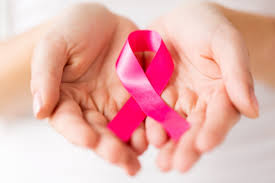
 Caffeine is considered to be a very strong agent in health care. Their have been studies indicating towards the health benefits that caffeine promises. In addition to the heart it is known to promise benefits by lowering the risk of skin cancer.
Caffeine is considered to be a very strong agent in health care. Their have been studies indicating towards the health benefits that caffeine promises. In addition to the heart it is known to promise benefits by lowering the risk of skin cancer.
Facts About Skin Cancer: Is Coffee A Deterrent?
Before discussing the benefits of coffee in lowering risks of skin cancer its important to remember that anything had in excess can do more harm than good. Research has indicated that having coffee can reduce the risk of skin cancer. Let us look at this aspect of coffee a little more in detail.
Skin Cancer Facts
A common type of cancer, skin cancer is abnormal growth of skin cells. It mostly develops in areas that are exposed to sunlight but can occur in other areas too. It is usually of three types –
- Basal Cell Carcinoma (BCC)
- Squamous Cell Carcinoma (SCC) and
- Melanoma.
As in other types of cancer early detection improves chances of survival and successful treatment. It is equally important to avoid exposure to UV radiation.
Latest Research – Coffee and Skin Cancer
Latest research shows that women who took about four cups of coffee had twenty per cent less chance of developing basal cell carcinoma (BCC). Similarly men who drank more coffee showed about ten per cent less possibility to develop basal cell carcinoma (BCC). To trust the results completely the experts tried decaffeinated coffee. However, this showed that it was caffeine that was doing the trick and no other component.
Fengju Song of Harvard Medical School says that perhaps caffeine has an ability to fight skin cancer. BCC is a risk that reduces with increase in the intake of caffeine. This is possible for both men and women. The study proves that it is more effective on women than on men.
Since 2011, there has been a lot of research is being done across the world to support the claims made by the researchers. The results are definitely not consistent. The animals on which the research is being done are not showing the same results. This proves the fact that there is something more to it other than just caffeine.
American Academy of Cancer Research did a study on about 110,000 people. in their early. The participants suffering from different types of skin cancer were given coffee on regular basis. After the intake of coffee it was those suffering from basal cell carcinoma (BCC) that showed significant most results. in comparison to squamous cell carcinoma (SCC) and melanoma.
The study on the topic of Coffee and skin cancer is interesting and it has attracted many researchers from across the world. Studies conducted on mice proves that the caffeine can kill the small numbers of the precancerous cells that get damaged when we are exposed to sunlight. Those cells that are damaged beyond repair can be eliminated by caffeine.
According to experts when heading for a day at the beach you can have a few cups of coffee. This will prevent your skin from getting damaged. Regular intake of caffeine is definitely not required. Sunscreen makers can look at the option of introducing caffeine into the sunscreens to make them more effective.
Other Precautions
There are some other things that can be done to avoid skin cancer too. 
- Other Caffeinated Drinks: Paul Nghiem, MD, PhD, associate professor at the Fred Hutchinson Cancer Research Centre and University of Washington says that caffeinated beverages can also do the trick. The professor also says that avoiding getting sun burnt is also a great way to deal with skin cancer.
- Avoiding the Sun: When it comes to skin cancer, avoidance of the sun is the best preventive measure that can be taken. Skin cancer can happen to anyone and at any time. One must be extra careful while stepping out.
Coffee is definitely a promising when it comes to reducing the risk skin cancer. But once again, the word of caution is that the various researches conducted cannot be considered conclusive and secondly excessive consumption of coffee may trigger some side effects.
Precautions
However, before drinking four cups of coffee a day yolook at the other aspects of the issue. Too much of coffee is not a great idea. It can lead to more complications.
References:
Scientific American Website
WebMD Website








